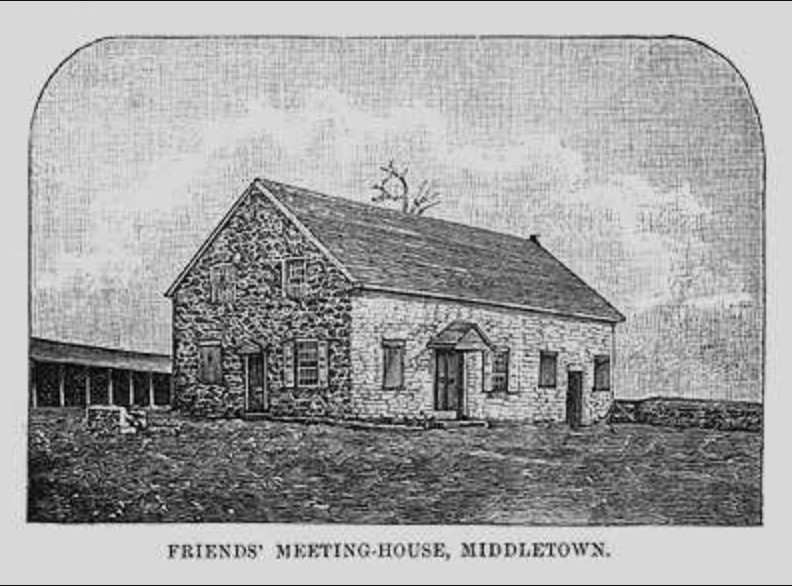During this week’s feature for Women’s History Month, we present another look at Margaret Gale Thornton and her accomplishments as one of Bucks County’s first female entrepreneurs. Like other businesspersons of her time, Margaret Thornton utilized the resources available to her to achieve her goals, including an affiliation with the practices of the Quaker tradition. A more in-depth portrayal of Margaret, including the details of her possible acceptance of Quaker beliefs, will be presented on our Untold Stories page on our website set to debut in April.
Was Margaret a Quaker? (And Why it Might have Mattered):
The Quaker religion was very common in Pennsylvania since William Penn founded the colony as a sanctuary for religious freedom and tolerance. Quakers were notoriously governed by strict codes. Although Colonial Quakers were not prohibited from drinking alcohol or partaking in tobacco, they had to exercise moderation in all things. Over time, Quakers would also explore temperance for moral reasons. These codes and moral rules might be difficult for tavern owners and innkeepers to follow. Conflicting records exist about whether Margaret Thornton was a Quaker and to what extent her husband, Joseph, participated in the religion.
The Quaker religion was very common in Pennsylvania since William Penn founded the colony as a sanctuary for religious freedom and tolerance. Quakers were notoriously governed by strict codes. Although Colonial Quakers were not prohibited from drinking alcohol or partaking in tobacco, they had to exercise moderation in all things. Over time, Quakers would also explore temperance for moral reasons. These codes and moral rules might be difficult for tavern owners and innkeepers to follow. Conflicting records exist about whether Margaret Thornton was a Quaker and to what extent her husband, Joseph, participated in the religion.
No declaration of marriage exists for Margaret and Joseph Thornton among Quaker records. Marriage among a registered Quaker and a non-Quaker was not accepted and considered “out of meeting.” In 1740, records show that Joseph officially transferred his membership from the Philadelphia Monthly Meeting to the Middletown Monthly Meeting of Friends, which included Newtown. Margaret was reportedly accepted as a member of the Quaker Friends in 1755, though this has been a matter of dispute since documentation of this does not exist and the timeline of her membership does not coincide with her husband’s transfer. Yet the births of all her children were recorded on the books at the Middletown Monthly Meeting.
Quaker women were fully supported, visible leaders amongst the local Bucks County society, as well as throughout Pennsylvania, in the promotion of religious beliefs and practices. Quaker women were active parishioners, serving as ministers, representing their community in all the local public places without their husbands — and not just talking about “womanly” concerns such as quilting, weaving, cooking, and raising children!
In a similar way, Margaret maintained the responsibilities of a colonial wife and mother, in addition to running the Half-Moon Inn. The Quaker emphasis on “speaking the truth” was held in utmost regard. If a Quaker business was in need of additional funds due to deceptive creditors or acts of nature such as a fire, a bad seasonal crop, or death, the Monthly Meeting provided those members with financial support.
It is important to consider Margaret Thornton in terms of Quakerism because of the opportunities it would have afforded her with her roles as wife, mother, and business owner. Her marriage to Joseph would have been looked upon as “sanctioned,” thereby legitimizing her children among local Quaker neighbors and customers. Her children would be granted recordings of birth at the Middletown Meeting and go on to honorably establish relationships and marriages among Bucks County’s most prestigious families. Whether Margaret’s decision to become a Quaker was made for political, moral, business reasons, or all three, she would have benefitted tremendously by its association. Under her management, the Half-Moon Inn would become an important social center for the Newtown community.
*Picture is from the project Middletown Meeting (formerly Neshaminy) early Quaker settlers of Bucks County
